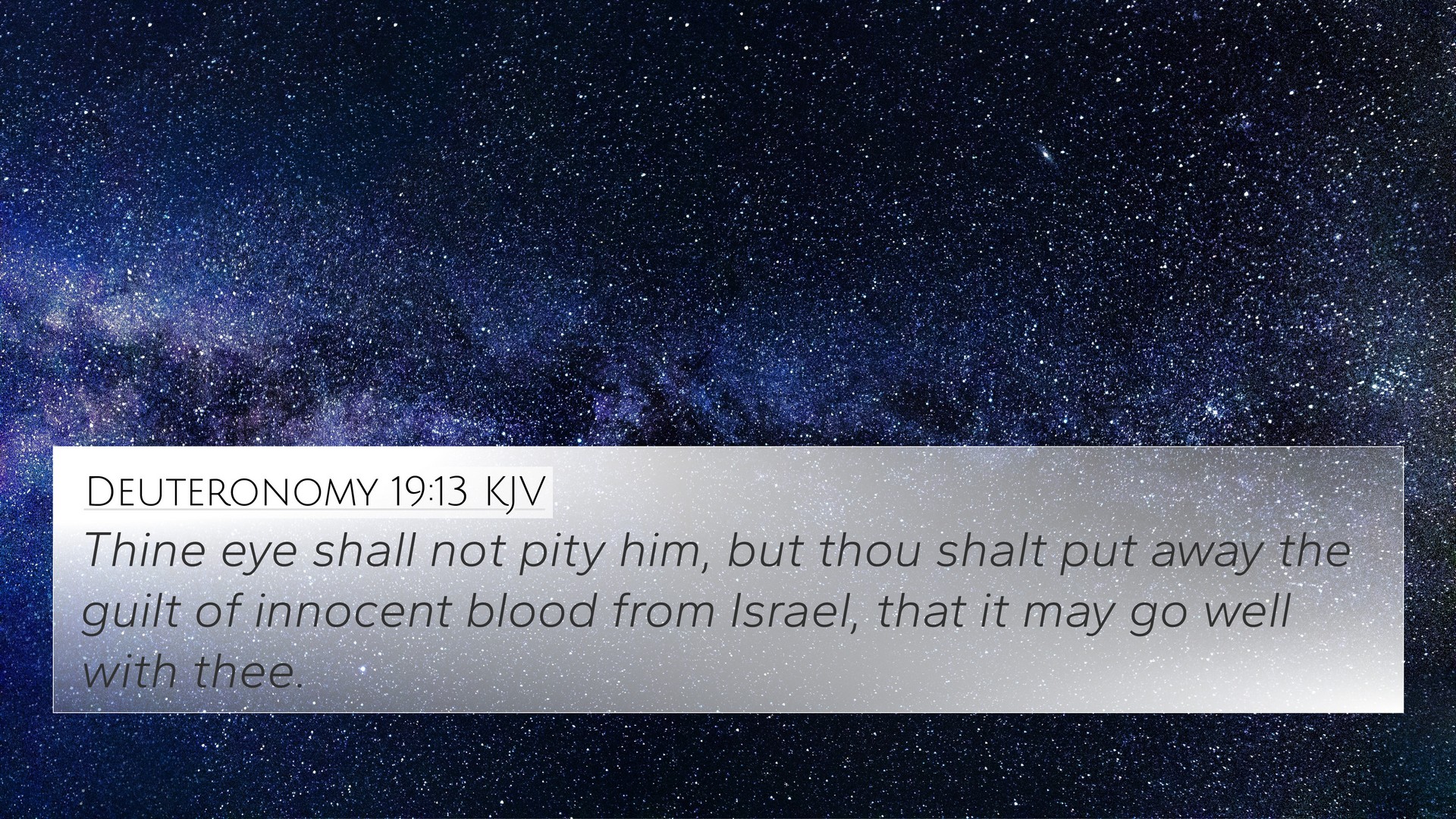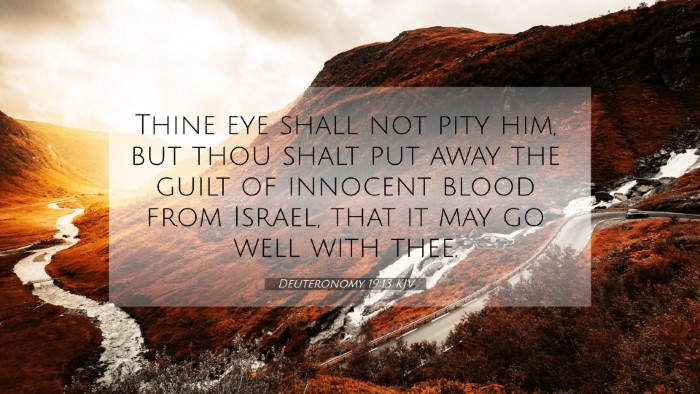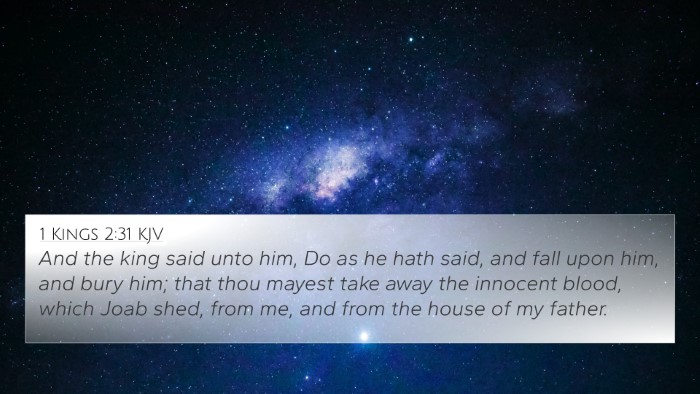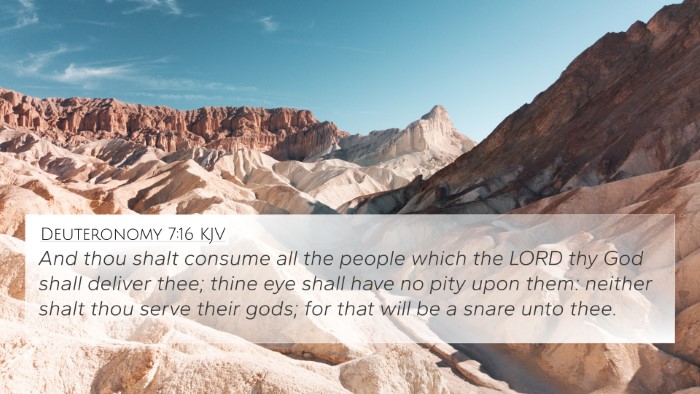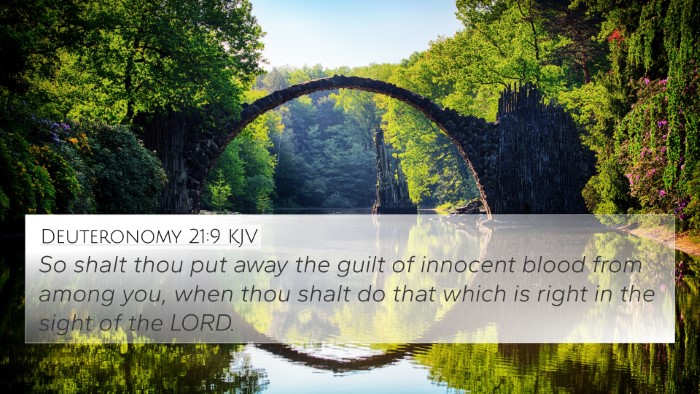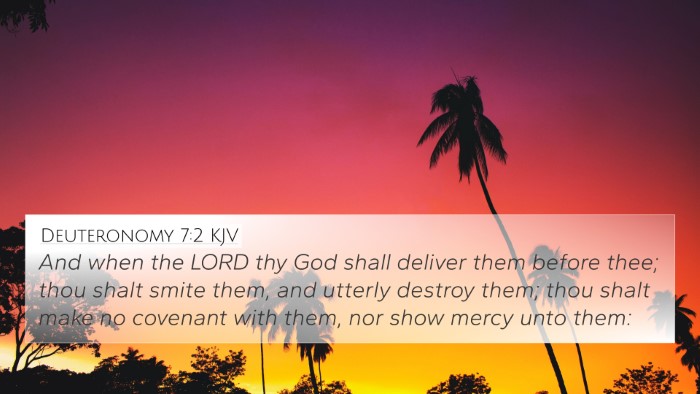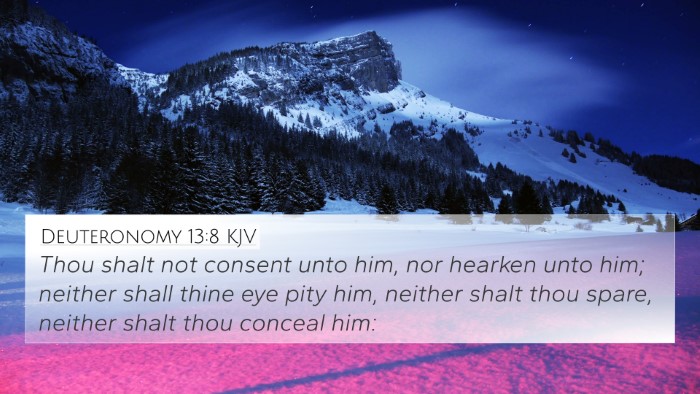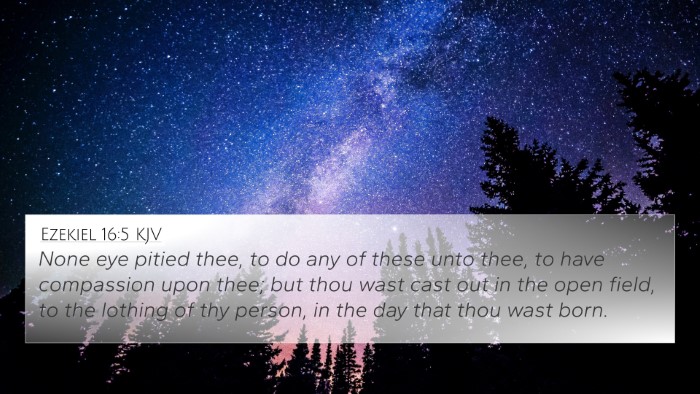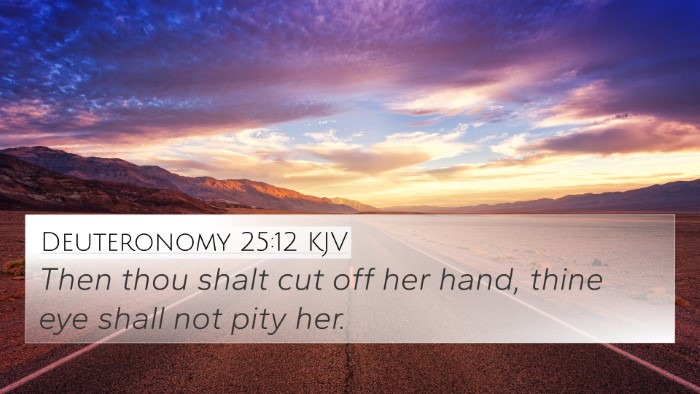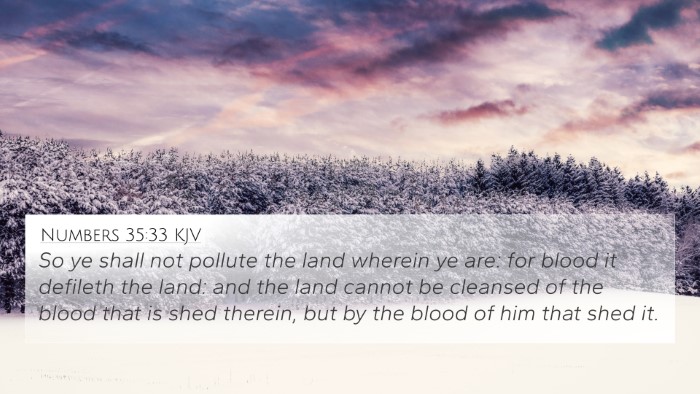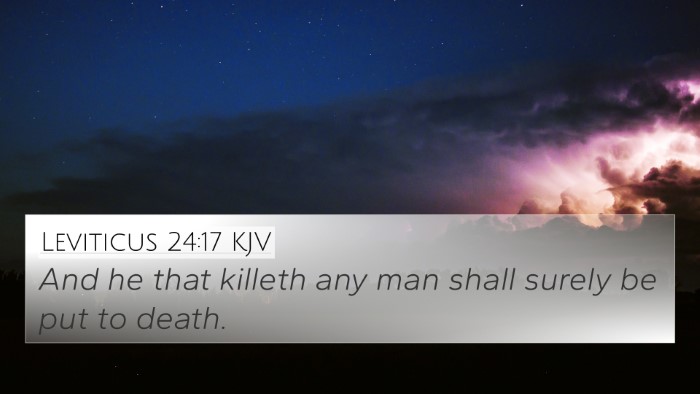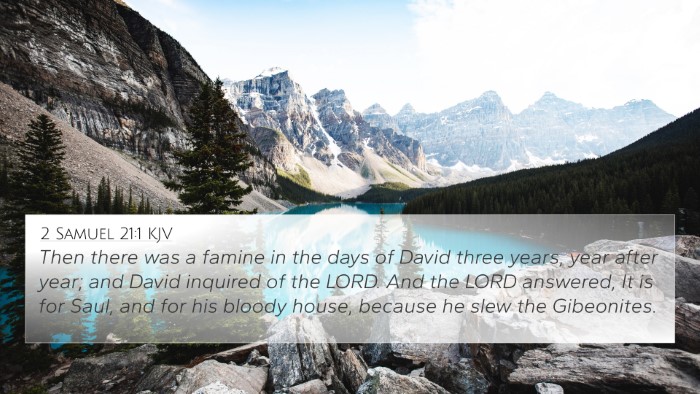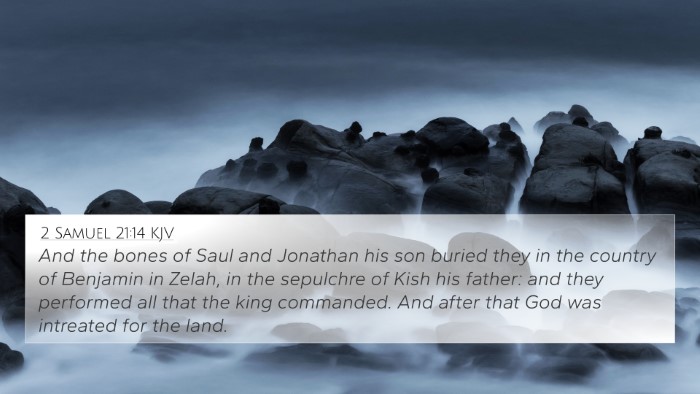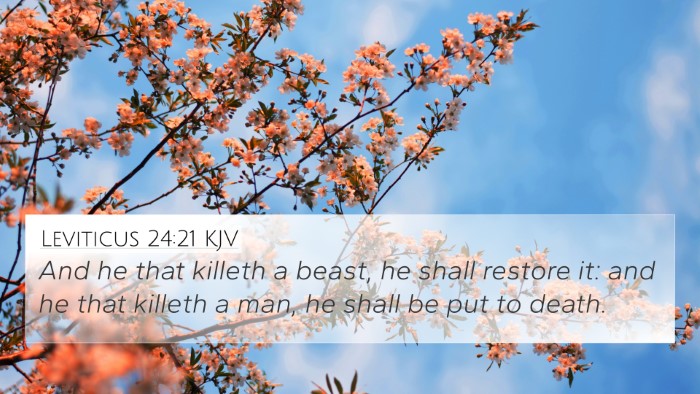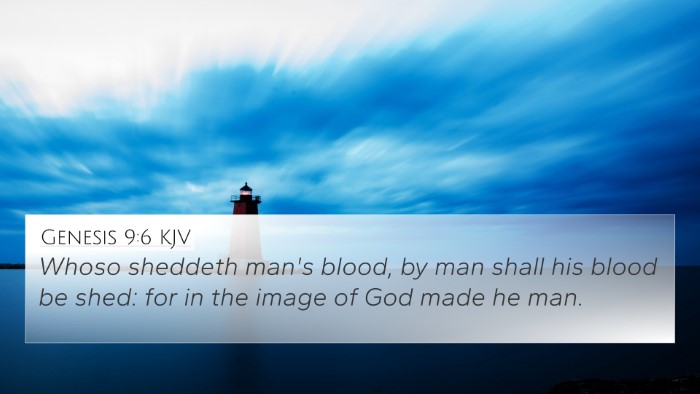Understanding Deuteronomy 19:13
Verse: Deuteronomy 19:13 states, “Thou shalt not pity him, but thou shalt put away the guilt of innocent blood from Israel, that it may go well with thee.”
Verse Meaning Summary
This verse addresses the legal responsibility concerning a murderer and emphasizes the importance of justice within the community. The command stresses that the community should not overlook or show sympathy for the murderer but rather ensure the execution of justice to maintain moral integrity and societal well-being.
Insights from Public Domain Commentaries
-
Matthew Henry's Commentary
Henry emphasizes the significance of communal justice and the obligation to uphold the law, arguing that showing pity to a murderer could lead to further moral decay. He interprets this verse as a warning against the dangers of allowing unrighteousness to persist, which could corrupt the entire nation.
-
Albert Barnes' Notes
Barnes points out that this directive serves not only as a guideline for justice but also reflects God's character. Justice must be served to remove guilt from the land, preventing the consequences of bloodshed, which could lead to divine judgment on the people.
-
Adam Clarke's Commentary
Clarke interprets this verse within the broader context of Israel's judicial system, explaining that the absence of strict punishment for transgressions contributes to societal chaos. The necessity of eradicating guilt from the land is crucial for achieving God's blessings upon Israel.
Bible Cross-References
Deuteronomy 19:13 can be cross-referenced with the following verses:
- Genesis 9:6: "Whoso sheddeth man's blood, by man shall his blood be shed." - This reflects the foundational principle of justice.
- Exodus 21:12: "He that smiteth a man, so that he die, shall be surely put to death." - Establishing the need for punishment for murder.
- Numbers 35:33: "So ye shall not pollute the land wherein ye are: for blood it defileth the land." - Warning against the implications of unpunished murder.
- 2 Samuel 1:16: "Thy blood be upon thy own head; for thy mouth hath testified against thee." - Highlights individual accountability and consequences of sin.
- Proverbs 6:16-19: "These six things doth the Lord hate: yea, seven are an abomination unto him." - Denouncing of deadly sins, including shedding innocent blood.
- Ezekiel 18:30: "Therefore I will judge you, O house of Israel, every one according to his ways, saith the Lord God." - God's judgment emphasizes personal responsibility.
- Matthew 5:21-22: "Ye have heard that it was said of old time, Thou shalt not kill." - Jesus reaffirms the significance of the commandment against murder.
Thematic Connections Between Bible Verses
This verse establishes crucial themes around justice, morality, and the implications of sin within a community. The connections between these passages illustrate the comprehensive nature of God’s plans for humanity and the necessity of upholding righteousness. In examining the thematic parallels, we can see consistent threads about the inherent value of human life and the consequences of violence, which is echoed throughout the Biblical narrative.
Bible Cross-Referencing Tools
For a deeper understanding of these themes, various tools for Bible cross-referencing are available:
- Bible concordance that indexes words and themes
- Cross-reference Bible study guides that provide connections between verses
- Comprehensive Bible cross-reference materials for detailed study
- Online Bible resources such as Bible software with built-in cross-reference systems
Conclusion
Deuteronomy 19:13 serves as a poignant reminder of God’s commitment to justice and the moral framework established for the community of Israel. Understanding its message through various biblical cross-references enriches our comprehension of how justice is a critical theme in Scripture. By engaging in comparative Bible verse analysis and utilizing the appropriate cross-referencing techniques, believers can deepen their insights into the profound moral lessons embedded in the Word of God.
